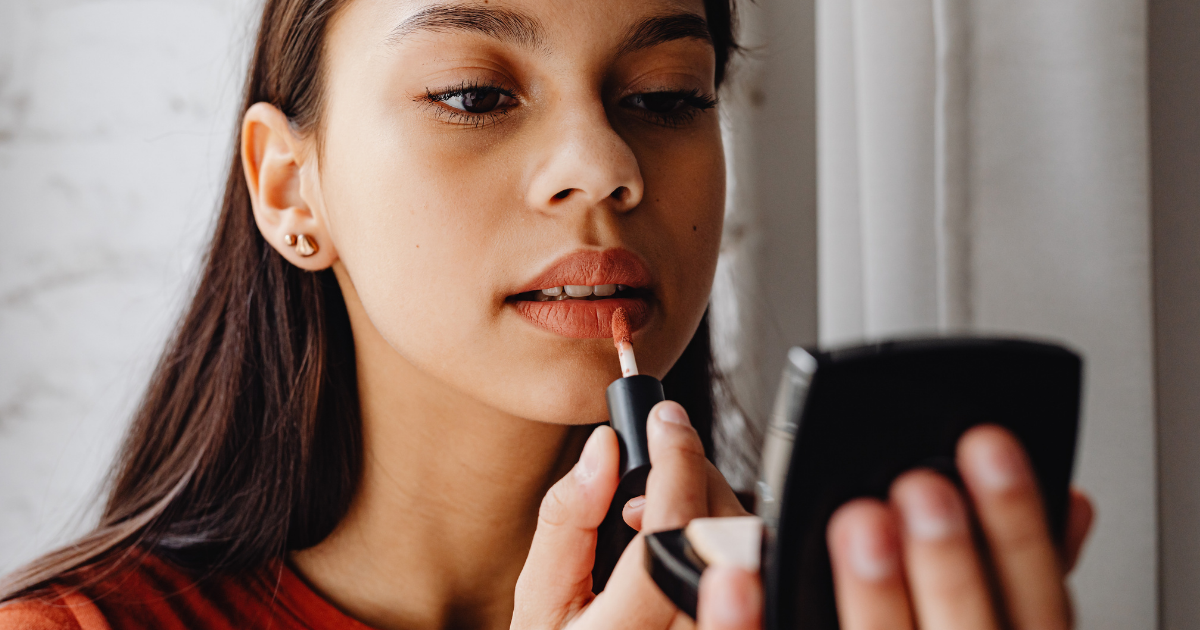If passed, first-ever bill will be the strongest state law in the country regulating toxic chemicals in cosmetics
UPDATE: On March 21, 2023, Washington’s Toxic-Free Cosmetics Act passed the Senate Environment, Energy, and Technology Committee. It now heads to to the Fiscal Committee for possible action.
OLYMPIA, WA—Today, the Toxic-Free Cosmetics Act (HB 1047)—sponsored by Washington State Representative Sharlett Mena (29th Legislative District)— passed in the Washington State House of Representatives with a vote of 55-41. The legislation bans formaldehyde and formaldehyde releasers, PFAS, lead, phthalates, and other harmful chemicals in cosmetics and personal care products by 2025. The bill now moves to the state Senate for consideration. If passed, the bill would be the strongest state law in the country regulating toxic chemicals in beauty and personal care products.
“You shouldn’t have to be a toxicologist to shop for your cosmetics,” stated Rep. Sharlett Mena (D-Tacoma). “When we go to the store, we assume that a product on the shelf is safe, but that isn’t always the truth. Unfortunately, what we have found is that not only do many cosmetics contain formaldehyde, lead, PFAS, but that products targeted at women of color are some of the worst offenders. The bill we passed this week can be a national model policy and help transition the cosmetics industry away from using these toxic chemicals. We should not be putting these toxic chemicals into our body or into the environment.”
Washington State Department of Ecology recently tested 50 products marketed to or used by people of color and found high levels of formaldehyde, a known carcinogen, in certain hair products, creams, and lotions. The Department of Ecology’s tests also found lead at concentrations greater than 1 ppm in two dark-tint powder foundations and one lipstick, despite there being no safe amount of lead according to both the Centers for Disease Control and Prevention (CDC) and World Health Organization (WHO). The report also describes the use of chemicals that are largely unregulated in skin lotions, hair conditioning treatments and styling gels, lip and eye makeup, and deodorant, including some linked to cancer, hormone disruption, and developmental and reproductive harm.
“This nation-leading bill will create critically needed protections for consumers who are largely unaware of toxic chemicals like formaldehyde in their lotions, makeup, and shampoo,” said Laurie Valeriano, executive director of Toxic-Free Future. “The legislation will help bring safer products to store shelves here in Washington and beyond by sparking innovation in the economy.”
Studies have shown that women of color are disproportionately exposed to harmful chemicals in cosmetics. A recent study by the American Journal of Obstetrics and Gynecology discusses the environmental justice impacts of beauty and states that people of color use more beauty products and are disproportionately exposed to toxic chemicals as compared to white consumers, with Black consumers purchasing nine times more ethnic hair and beauty products than other groups.
The legislation comes at a time when retailers are increasingly adopting policies to phase out and ban toxic chemicals in beauty and personal care products, according to the Retailer Report Card. Retailers including Credo Beauty, CVS Health, Rite Aid, Sephora, Target, Ulta Beauty, Walgreens, Walmart, and Whole Foods Market have been working to reduce and eliminate harmful chemicals such as phthalates, parabens, PFAS, and/or formaldehyde releasers in beauty and personal care products. More recently, some major retailers have reported substantive progress in addressing harmful chemicals in beauty products. Sephora recently reported it has achieved a 39.5% reduction in brand-name beauty products with one or more toxic chemicals. Walmart has reduced priority chemicals by 37 million pounds in key product categories such as cosmetics, personal care, household cleaners, and formulated baby care products.
For more information on Washington State’s Toxic-Free Cosmetics Act, visit: https://toxicfreefuture.org/2023-washington-state-cosmetics-bill/
TOXIC-FREE FUTURE
Toxic-Free Future (TFF) is a national leader in environmental health research and advocacy. Through the power of science, education, and activism, Toxic-Free Future drives strong laws and corporate responsibility that protects the health of all people and the planet.
###
MEDIA CONTACT
Stephanie Stohler

